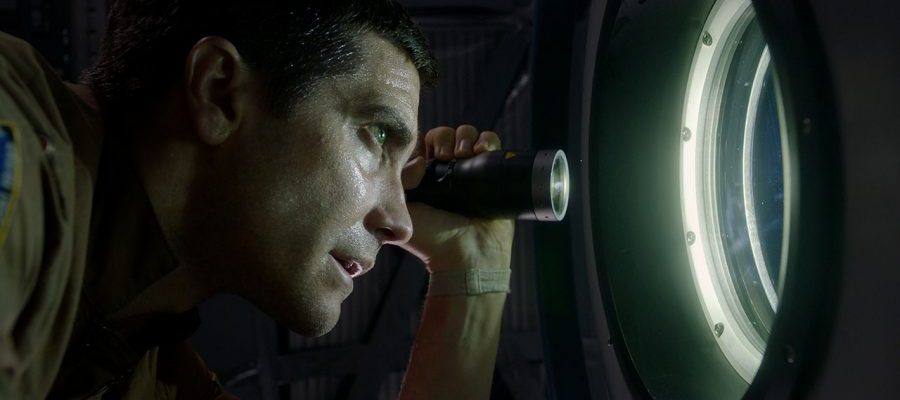Review: 'Life' Has a Great Ensemble that Exceeds Expectations

Erin Graham ‘19 / Emertainment Monthly Assistant Television Editor
Much like harboring a foreign and aggressive alien entity on an isolated space station, a sci-fi horror film without novelty can crumble from the inside. Fortunately, Daniel Espinosa’s Life mimics the first scene more than the antagonistic strife: though elements hurdle at the space station and chip off away at the facade, the core remains strong.
The nucleus of this International Space Station crew orbits an endearing network of relationships and characters. David Jordan (Jake Gyllenhaal) plays a demure American doctor about to set the record for most consecutive days in space. While spaceship dramas aren’t exactly scarce, most characters in them have an insatiable yearning for home; Jordan, however, comments that he likes the hum of space and can’t imagine going back to Earth, which is a refreshing spin on the astronaut trope. His counterpart, American technician Roy Adams (Ryan Reynolds), has a big mouth but also a nuanced character that reveals itself in more intense moments.
In the opening scenes, Japanese astronaut Sho Kendo (Hiroyuki Sanada) video calls his wife, who’s giving birth to his new daughter. The entire crew, including Brits Hugh Derry (Ariyon Bakare) and Miranda North (Rebecca Ferguson), and Russian Kat (Olga Dihovichnaya) coo over his little girl. The scene is simple but endearing, though it doesn’t sell itself short: every moment the film lingered near a potentially corny line of dialogue, it held back and let the scene flow naturally. The cinematography flowed smoothly, following the delicate dance of humans in anti-gravity, the pacing setting in.

Inevitably, the alien turns into an uncontrollable monster, consuming the hope the international crew once had, growing physically as the momentum of the film builds itself, never once ceding from the intense cascade of dramatic irony, jump scares, and slow-building tension. The plot twists are all just short of predictable; it’s easy to feel what’s coming, but you’ll likely be just a step away from the filmmakers for the whole movie.

If each character removed themselves from the world they are in and tried to exist outside of the context of their crew, they would likely fail to be engaging without some further backstory. However, the film ultimately succeeds as an ensemble movie because the characters aren’t without their crew in such an enclosed setting. The relationships move the plot, even without independently developed characters.

The alien itself becomes an incongruent metaphor: it grows with the fascination of the ship’s crew, and, as Derry points out, “Its curiosity is stronger than its fear.” Whether this is a nod to an audience in fear of change, of space exploration, or the unknown, it’s a small, beautiful moment shared amongst a bunch of humans. Of course, it grows into a monster, but even then the scientists aboard the Station are careful to point out that it, too, is just trying to survive. Though perhaps it’s a contrived and corny metaphor, the alien represented every fear and every hope that life contains: something beyond ourselves, the inevitable. But even without the lofty metaphors and symbols, the film operates as a strong sci-fi horror and thriller, with unexpected twists, well-written dialogue, competent visual effects, and nuanced acting.
If you’re looking for endearing horror tackling topics like death and birth and sacrifice, you might just want to check out something called Life.
Overall Grade: A-
Watch The Trailer:
[embedyt] http://www.youtube.com/watch?v=LeLsJfGmY_Y[/embedyt]